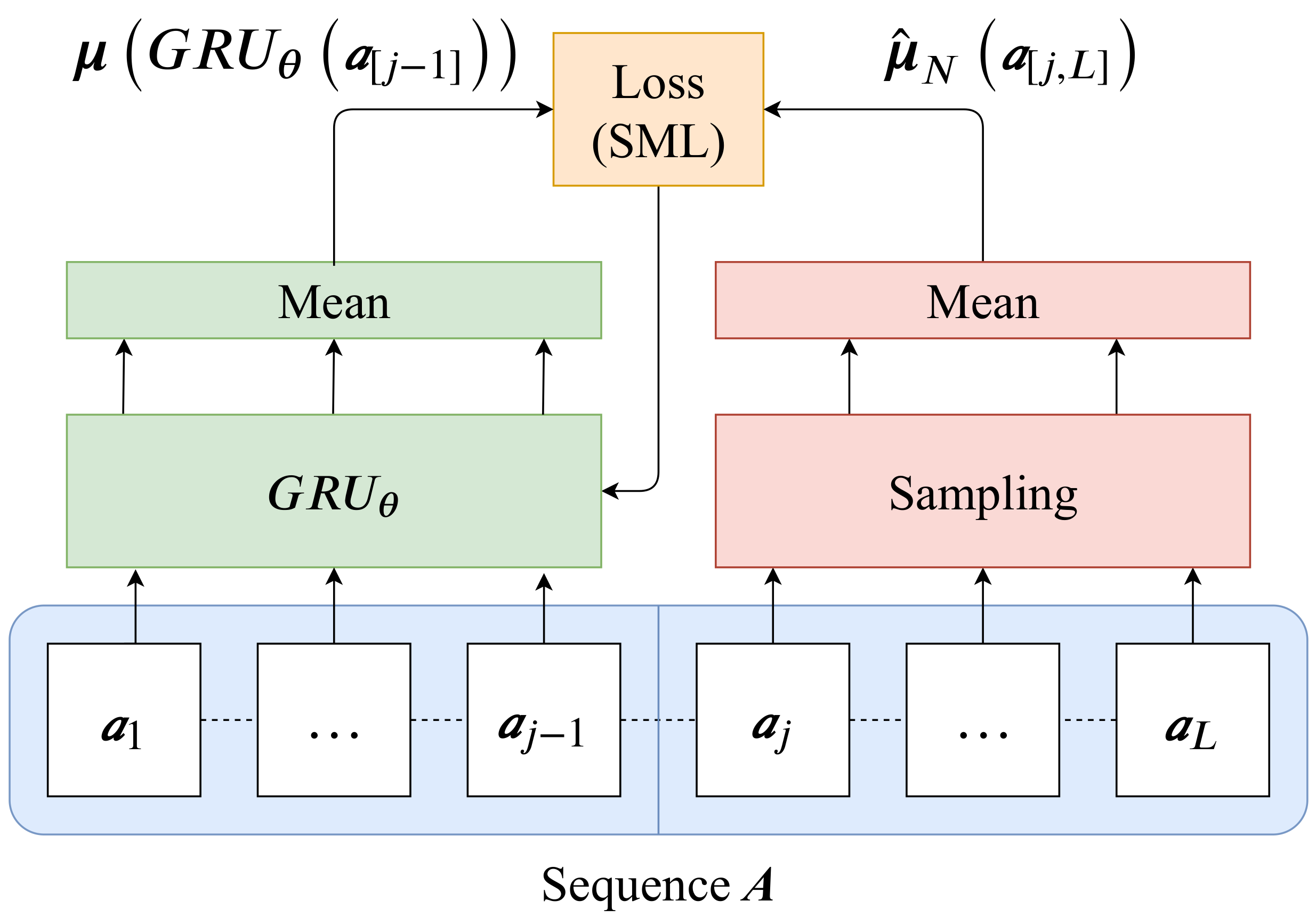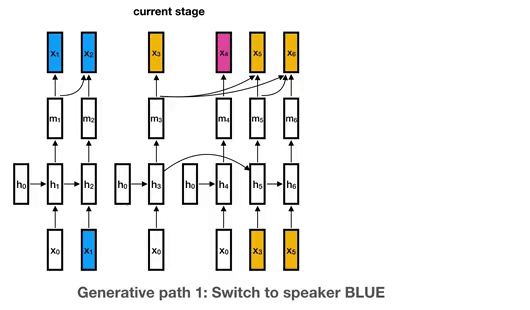This repository implements some useful features on top of the original UIS-RNN repository. Some of them are described in the following paper: Supervised Online Diarization with Sample Mean Loss for Multi-Domain Data. Here is a list:
- Sample Mean Loss (SML), a loss function that improves performance and training efficiency. To learn more about it you can read our paper.
- Estimation of
crp_alpha, a parameter of the distance dependent Chinese Restaurant Process (ddCRP) that determines the probability of switching to a new speaker. Again, more info in our paper. - Parallel prediction using
torch.multiprocessing, that mitigates the issue with slow decoding and enables higher GPU usage. - Tensorboard logging, for visualizing training.
Here is a diagram of the Sample Mean Loss:
The UIS-RNN was originally proposed in Fully Supervised Speaker Diarization.
To get started, simply run this command:
python3 demo.py --train_iteration=1000 -l=0.001This will train a UIS-RNN model using data/toy_training_data.npz,
then store the model on disk, perform inference on data/toy_testing_data.npz,
print the inference results, and save the averaged accuracy in a text file.
P.S.: The files under data/ are manually generated toy data,
for demonstration purpose only.
These data are very simple, so we are supposed to get 100% accuracy on the
testing data.
--loss_samplesthe number of samples for the Sample Mean Loss. Ifloss_samples <= 0it will be ignored and the loss will be computed as per the original UIS-RNN--fc_depth: the numebr of fully connected layers after the GRU.--non_lin: whether to use non linearity (relu) in the fully connected layers.NUM_WORKERS: the number of workers (processes) for multiprocessing. The argument can be found indemo.py.
All the other arguments are the same as per the original repository
Our paper is cited as:
@article{fini2019supervised,
title={Supervised online diarization with sample mean loss for multi-domain data},
author={Fini, Enrico and Brutti, Alessio},
journal={arXiv preprint arXiv:1911.01266},
year={2019}
}

